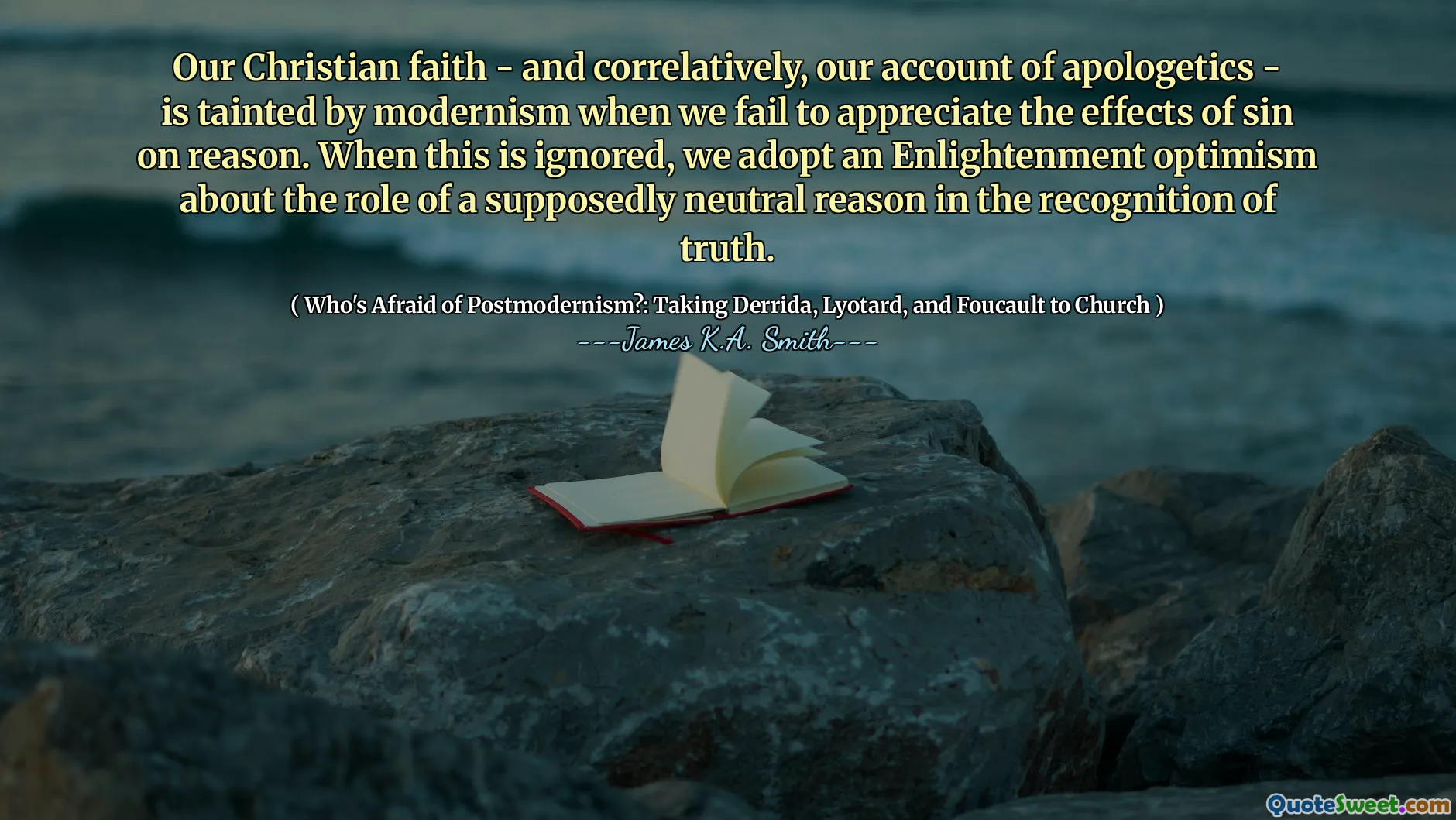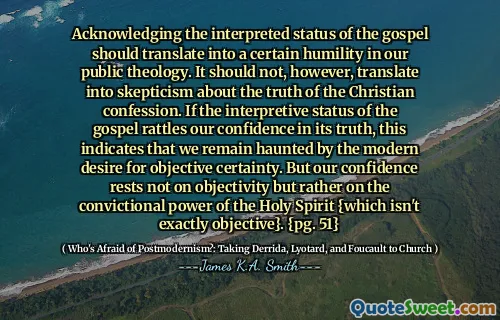
Our Christian faith - and correlatively, our account of apologetics - is tainted by modernism when we fail to appreciate the effects of sin on reason. When this is ignored, we adopt an Enlightenment optimism about the role of a supposedly neutral reason in the recognition of truth.
This quote highlights a critical introspection within Christian apologetics, emphasizing the importance of acknowledging human sinfulness and its impact on rationality. Often, theological reasoning assumes that human reason can function as a neutral and objective tool to discern truth. However, the acknowledgment of sin challenges this assumption, revealing that our rational capacities are inherently influenced by fallen tendencies, biases, and distortions. The Enlightenment's belief in the impartiality of reason tends to overlook these spiritual and moral impairments, leading to an overly optimistic view that truth can be realized through reason alone without divine guidance or moral grounding.
By failing to recognize the effects of sin, there's a risk of adopting a form of modernism that posits reason as an autonomous entity capable of uncovering ultimate truths independently. This oversight can undermine the core tenets of Christian epistemology, which often emphasizes reliance on divine revelation and the grace of God in understanding spiritual realities. The quote invites theologians, scholars, and believers alike to reflect on how modern philosophical paradigms might inadvertently distort our approach to faith and truth.
Incorporating this awareness serves as a safeguard against a naive confidence in human reason. It encourages a humility that recognizes the need for divine illumination and humility in our pursuit of truth. Such an understanding fosters a more holistic view of knowledge—one that integrates faith, reason, and an awareness of our moral limitations. Ultimately, this reflection calls for a more nuanced apologetics that does not dismiss reason but contextualizes it within a fallen, redeemed human condition.







